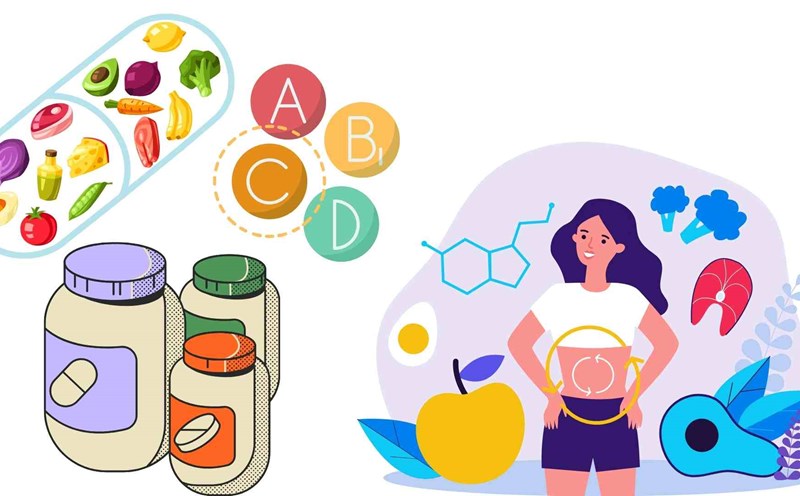Why is vitamin D3 important after age 40?
According to Dr. Rahul Mathur (Department of Internal Medicine, Birla CK Hospital, Jaipur, India), as age increases, the body's ability to self-produced Vitamin D decreases. Despite regular exposure to sunlight, the skin still produces less vitamin D than when young. In addition, modern lifestyles with a lot of time indoors, air pollution and the regular use of sunscreen make deficiency more common.
Vitamin D3 helps the body absorb calcium effectively, contributing to maintaining strong bones and teeth. In addition, vitamin D3 also supports muscle health, strengthens the immune system, improves mood and helps prevent chronic diseases of the cardiovascular and bones and joints.
Common signs of vitamin D3 deficiency
Vitamin D3 deficiency can cause a series of health problems that many people often do not notice:
Fatigue, decreased energy.
Back pain, muscle pain, joint pain.
facility for flu or infection.
Heavy hair loss, dry skin.
Irregular mood, easily irritable or bored.
If you experience these signs for a long time, you should check your blood vitamin D levels for appropriate supplementation instructions.
Why is calcium supplementation not enough?
Dr. Rahul Mathur said that many middle-aged people often supplement calcium to prevent osteoporosis, but in fact, calcium cannot promote its effects if the body lacks vitamin D3. This vitamin helps absorb and transport calcium to bones, ensuring that calcium is used properly. When vitamin D3 is deficient, most of the calcium intake will not be absorbed effectively, reducing the effect of maintaining strong bones.
Benefits of vitamin D3 supplementation
Improve bone and joint health: Helps the body absorb calcium effectively, prevent osteoporosis and reduce the risk of fractures.
Support muscle strength: Helps improve flexibility, reduce the risk of falls in the elderly.
Boosts immunity: Helps the body fight bacteria, viruses and reduce the risk of diseases in the cold season.
Improve cardiovascular health: Vitamin D3 can help regulate blood pressure and reduce inflammation of blood vessels.
Mood stability and energy: Vitamin D deficiency is often associated with fatigue and mild depression.
How to effectively supplement vitamin D3
Proper sun exposure: Exposure to morning sunlight for 1015 minutes a day helps the body synthesize vitamin D naturally.
Supplement through food: Fatty fish (almon, mackerel, tuna), egg yolks, milk and mushrooms are rich sources of natural vitamin D3.
Functional foods: Can be supplemented with vitamin D3 tablets as directed by your doctor. Do not arbitrarily take high doses because they can harm the liver and kidneys.











